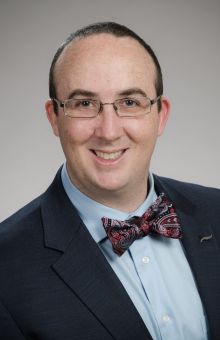Clinical and Research Background
The Mendenhall lab is working to alleviate age related disease and suffering by studying individual cells in live animals during the course of aging. What keeps the cells of particularly long-lived, healthy individuals functional for longer amounts of time? This question is particularly striking when one considers that genetically identical humans (monozygotic twins) live for different amounts of time and succumb to different diseases. Even in well-controlled laboratory environments, genetically identical animals live for different amounts of time.
Dr. Mendenhall’s laboratory utilizes the nematode C. elegans to understand how and why genetically identical populations of cells and animals in the same environment do different things. The Mendenhall lab wants to know how much and what kind of physiological variation is intrinsic/chance based, is programmed, and is heritable. Ultimately, they want to know how all of the physiological variation that manifests between genetically identical cells in genetically identical animals affects the aging process.
The Mendenhall lab takes the approach of directly observing events inside of living cells. They study the causes and consequences of variation in gene expression and other emergent system properties by using a spectral confocal microscope to measure fluorescent signals from specific cells in animals bearing multiple reporter genes. Many of the emergent system properties may be consequential, and are only possible to see by observing multiple reporters in individual cells. Thus, the Mendenhall lab uses an array of reporter genes to identify cellular mechanisms that may cause variation in lifespan by measuring the functionality of different cellular subsystems during the course of aging. They have begun generating a cell-resolution atlas of age-related changes in gene expression and other kinds of cell physiology. These data are used to generate and test hypotheses to determine mechanisms of cell, organ and organism failure during the natural aging process, and in different disease models, including C. elegans models of cancer and Alzheimer’s disease.
Academic and Medical Appointments
Assistant Professor, Department of Pathology, University of Washington, 2016-Present
Education and Training
Postdoc, Roger Brent’s Lab, FHCRC, Seattle, WA, 2011-2016
Postdoc, Tom Johnson’s Lab, University of Colorado, Boulder, CO, 2008-2011
Doctorate of Philosophy, Pam Padilla’s Lab, University of North Texas, Denton, TX, 2003-2008
Master of Geoscience, Texas A&M University, College Station, TX, 2000-2002
Bachelor of Science, Texas A&M University, College Station, TX, 1996-2000
Publications
Latest publications from PubMed
